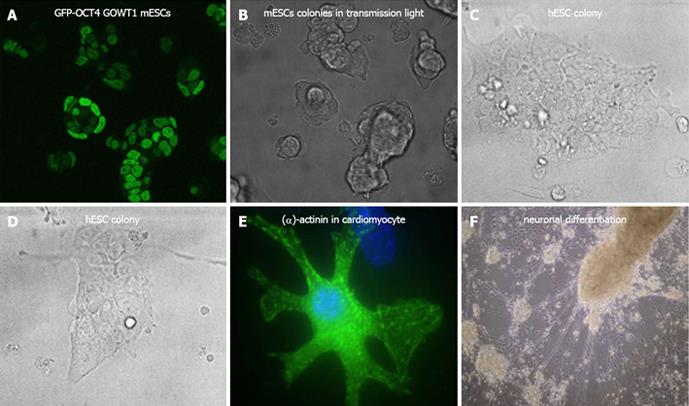Copyright
©2013 Baishideng Publishing Group Co.
World J Stem Cells. Jul 26, 2013; 5(3): 73-85
Published online Jul 26, 2013. doi: 10.4252/wjsc.v5.i3.73
Published online Jul 26, 2013. doi: 10.4252/wjsc.v5.i3.73
Figure 1 Morphology of a mouse embryonic stem cells colonies.
A, B: Confocal microscopy of mouse embryonic stem cells (mESC) colonies (line GOWT1) stably expressing GFP-OCT4 was performed using a Leica SPX-5 microscope. GFP fluorescence is shown as green and the cell colonies were additionally visualized in transmission light (gray); C, D: Morphology of human embryonic stem cells (hESC) colonies studied by transmission light; E, F: mESCs (line D3) were differentiated into cardiomyocytes (gray) (E) according to report of Veselá et al[113] and α-actinin morphology (green) was studied using the appropriate antibody. Nuclei were visualized by DAPI staining (blue). Cardiomyocytes were characterized by their specific strip-like morphology of α-actinin. Morphology of mouse ESCs differentiated into neuronal pathway[114] is also showed (F).
- Citation: Přikrylová T, Pacherník J, Kozubek S, Bártová E. Epigenetics and chromatin plasticity in embryonic stem cells. World J Stem Cells 2013; 5(3): 73-85
- URL: https://www.wjgnet.com/1948-0210/full/v5/i3/73.htm
- DOI: https://dx.doi.org/10.4252/wjsc.v5.i3.73









